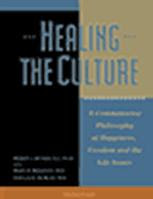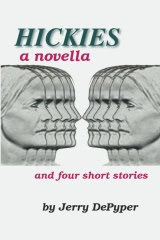In the previous post, I offered my radical (root cause) analysis of the current moral crisis in the world. Now for an even more radical analysis, of a deeper root cause, a systemic ill at foundational levels...
Until recent times, the patriarchal structure of families and of society was not seriously questioned. And for good reason: from a Scriptural point of view, the most basic human authority is that established by God before the Fall of Man - the authority of Man over the rest of God's creation, and the real authority which God bestowed upon Adam over Eve, and, by extension, of all husbands over their wives. This domestic line of authority is, from a divine point of view, the source of all other human authority, the beginning of all human organization and governance.
As an important aside, it must be pointed out that patriarchal authority does not automatically infer actual superiority. Jehovah's Witnesses (not the brightest bulbs in the pack) make the intellectual blunder of deciding that, since Jesus obeys the Father he must be inferior to the Father and therefore not divine. Feminists make the identical error in proclaiming that Patriarchy degrades women by making wives obey their husbands.
Notice that in all four biblical passages¹ where wives are enjoined to be subject to their husbands, they are told to obey their own husbands. Which is to say, they have no business obeying other men. This debunks the feminist myth, does it not? For the feminist complaint to be credible, Patriarchy would have to demand that all women obey all men because of their innate inferiority to them.
As it is, true Patriarchy is about a divinely established order, and has nothing to do with an organic superiority. In this context, the word 'superior' may denote an order of authority, but it does not necessarily mean a higher level of worth or goodness. Consider: The Catholic Faith teaches that in the Holy Family there was one sinner, one sinless human, and one sinless divine-human. Yet the sinful Joseph had patriarchal authority over Mary and the child Jesus, both of whom were really superior to him.
1. Eph.5:22, Col.3:18, Tit.2:5, I Pet.3:1
Moreover, this patriarchal pattern is reflected in - nay, is the essence of - true monotheism, the relationship between Man and the Almighty. God as Father and God as divine Lover are two parts of one ancient theme. The pages of Scripture, both old and new testaments, are full of references to a nuptial relationship between God and his people. That most grevious sin of idolatry is always portrayed as the sin of adultery, analogous to the traitorous deceit of an espoused bride leaving her true husband and embracing false lovers.
As St. Augustine pointed out, the human soul is always feminine before God. But notice that for
Augustine's insight to make any sense, we must assume a patriarchal structure to our own human society. We must first understand that it is right and necessary for every young lady to save her virginity for one man, and then devote herself to that one man. And the man must then be willing to shoulder his responsibility as leader and provider and father. Only when we accept this as our norm can we see our proper posture before God our Father. There is a necessary link between the patriarchal roots of civilization and the patriarchal essence of true religion.
Interestingly, it starts with the Woman, and it starts with raw biology. The beginning of the patriarchal order is when the woman binds herself to one man and one man only. She in effect decides to belong to that one man, most likely to the man to whom she gives her virginity. If the man finds her devotion credible, he can for the first time know what the woman always knows via her biological role: he can know his own children. He can be a father in the true sense, and can shoulder the responsibility for both his devoted wife and for their children. From a biological point of view, the woman's devotion and submission is what enables the man to abandon the haphazard biological strategy of spreading his seed as widely and generously as possible, and to adopt instead the better approach, of caring for his own children and for their mother. It is the woman's feminine devotion that makes patriarchy - fatherhood - possible, and which is therefore the beginning and foundation of civilization as we know it.
Likewise, the soul that would be saved must abandon all false lovers and give herself wholly to her God. Like the devoted virgin giving herself to one man only, the Church and each of her members must be devoted wholly to God our Father and divine Lover. This means we must categorically reject the surrounding culture and its values. We can no longer pretend to be friends of this current culture nor of those holding worldly power (Jas.4:4). Having devoted ourselves to God alone, we must reject the adulterous advances of all others, especially the usurpations of feminists and egalitarians.
Consider how our present world scorns fatherhood. The feminist / egalitarian / homosexual campaign to redefine marriage and the family amounts to a rejection of the patriarchal institutions of marriage and family. Portraying abortion as solely a woman's 'right' deliberately ignores the rights of the baby and also denies the holistic patriarchal structure of the family and the responsibility of the father. The breadwinner status in the home is supplanted by government entitlements which foster dependency upon the bureaucracy and render genuine fatherhood practically superfluous. The net effect of the world's agenda is to foster a post-civilized savagery in which both men and women flit from mate to mate like bees flitting from flower to flower. Can someone tell me how a child of God can be on friendly terms with such? No, the Christian politician - or even the Christian who is a friend of politics - is a contradiction of terms, an oxymoronic impossibility. The Christian who cavorts with worldly powers is more prostitute than bride. Every soul that would be devoted to God must heed St. Peter's Pentecost call to "save yourselves from this wicked generation." (Acts 2:40)
Unless we reject the soft tyranny of feminism and return as a people to the disciplined virtues of patriarchy, we will lose all vestiges of fatherhood. Which is to say, we will be lost and uncivilized, no better than wild animals. And unless we return as a Church to a wholehearted devotion to God and a rejection of our surrounding culture, we will lose our connection to God our Father, and will be damned.
 Diary of Saint Maria Faustina Kowalska: Divine Mercy in My Soul by Faustina Kowalska
Diary of Saint Maria Faustina Kowalska: Divine Mercy in My Soul by Faustina Kowalska






